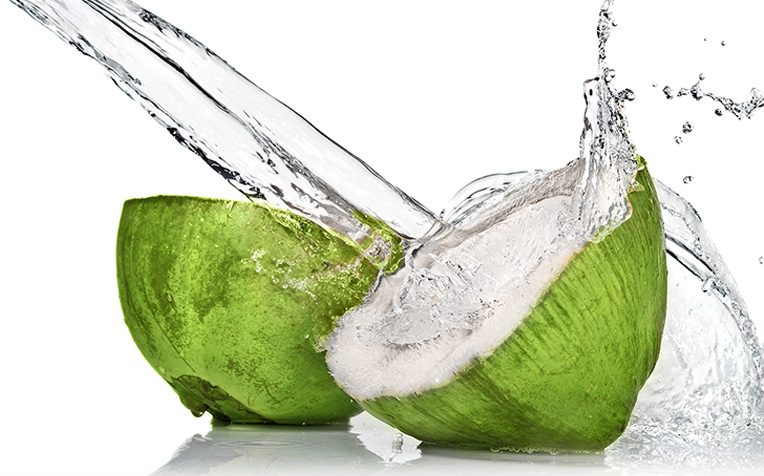
Look Cool and Caring with the limited edition SingHealth masks!
Show your support for healthcare heroes with a specially designed set of two masks saluting healthcare heroes! A white classic that is perfect for any occasion, and black, colourful rendition for a bold fun twist. 100% of net proceeds for these masks go to the SingHealth Resilience in Crisis Fund to support the physical and mental wellbeing of healthcare workers. Get yours and get them as gifts for loved ones too!
Check out SingHealth limited edition masks now!
From hip and innovative coconut infused drinks, to the deluge of coconut oil products, this tropical produce has slowly seen mass market appeal and success.
But are the many health benefits surrounding a coconut actually true? Our dietitians from
Dietetic & Food Services at
Changi General Hospital (CGH), a member of the
SingHealth group, lay down the facts for you!
Coconut water / juice
Coconut water is touted as a great tool to rehydrate after exercise or a bout of diarrhoea as electrolytes such as potassium, sodium and manganese are present. However, plain water works just as well for hydration under most circumstances. Do note that coconut water contains at least 50kcal and up to 10g of sugar per 250ml (1 cup).
Read more:
Is tea healthier than coffee? Our dietitian answers
Coconut milk
Not to be confused with coconut water, coconut milk does not occur naturally, but instead refers to the reconstitution of coconut flesh and water.
Coconut milk is a source of several vitamins and minerals essential to our body. One cup (250ml) of coconut milk contains 600 calories and one cup of coconut cream (canned) contains 1500 calories, most of which come from fat. Coconut milk is rich in saturated fat, which has been shown to raise harmful Low Density Lipoprotein (LDL) cholesterol levels. High LDL cholesterol levels increases one’s risk of heart diseases and stroke.
Coconut oil
Coconut oil should be taken in limited quantities due to high saturated fat content. Coconut oil has also seen a boom in topical use as a product for the hair and skin due to its postulated moisturising and anti-inflammatory properties. While hairstylists and beauty specialists swear by coconut oil products, these benefits have yet to be substantiated by medical studies.
Many health claims for coconut oil can be attributed to the presence of medium-chain triglycerides (MCTs). MCTs are posited to aid in weight loss, because they are more efficiently turned into energy. However, studies have yet to be conclusive, and any excess MCT will still be stored as fat in the body. It should also be qualified that commercial coconut oil contains mostly lauric acid, which is not an MCT.
Coconut flesh
The fleshy interior of the coconut provides 175kcal per coconut (50g of flesh). It contains 4g fibre, which may be useful for digestion and satiety. Similar to coconut oil and milk, the flesh also contains high levels of saturated fat.
The coconut contains many vitamins and minerals, and if you are a fan, please enjoy your use of coconut! The keyword is:
Moderation! Don’t go (coco)nuts!
Read more:
Does being too clean make a child more prone to sickness?
--
Articles on
HealthXchange.sg are meant for informational purposes only and cannot replace professional surgical, medical or health advice, examination, diagnosis or treatment. Photo courtesy of iStock.